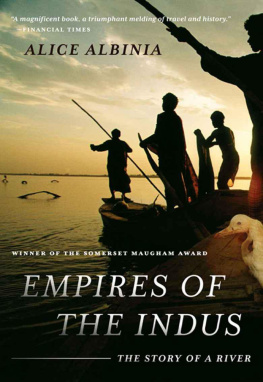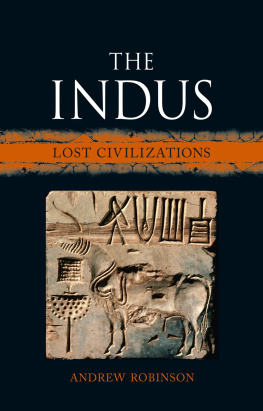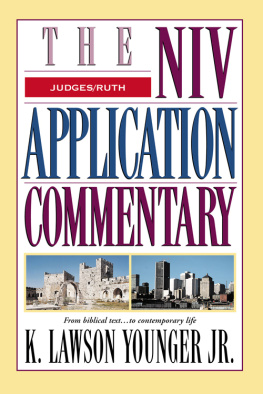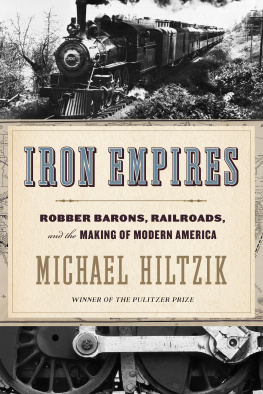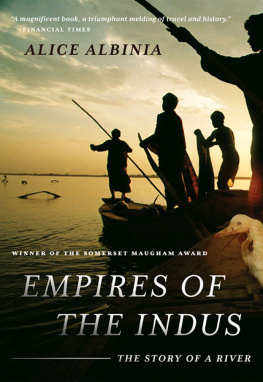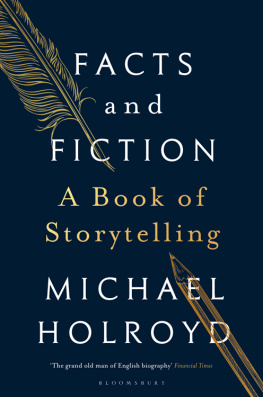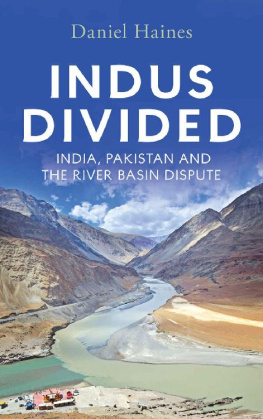Alice Albinia - Empires of the Indus: The Story of a River
Here you can read online Alice Albinia - Empires of the Indus: The Story of a River full text of the book (entire story) in english for free. Download pdf and epub, get meaning, cover and reviews about this ebook. year: 2008, publisher: John Murray, genre: Detective and thriller. Description of the work, (preface) as well as reviews are available. Best literature library LitArk.com created for fans of good reading and offers a wide selection of genres:
Romance novel
Science fiction
Adventure
Detective
Science
History
Home and family
Prose
Art
Politics
Computer
Non-fiction
Religion
Business
Children
Humor
Choose a favorite category and find really read worthwhile books. Enjoy immersion in the world of imagination, feel the emotions of the characters or learn something new for yourself, make an fascinating discovery.
- Book:Empires of the Indus: The Story of a River
- Author:
- Publisher:John Murray
- Genre:
- Year:2008
- Rating:5 / 5
- Favourites:Add to favourites
- Your mark:
- 100
- 1
- 2
- 3
- 4
- 5
Empires of the Indus: The Story of a River: summary, description and annotation
We offer to read an annotation, description, summary or preface (depends on what the author of the book "Empires of the Indus: The Story of a River" wrote himself). If you haven't found the necessary information about the book — write in the comments, we will try to find it.
Empires of the Indus: The Story of a River — read online for free the complete book (whole text) full work
Below is the text of the book, divided by pages. System saving the place of the last page read, allows you to conveniently read the book "Empires of the Indus: The Story of a River" online for free, without having to search again every time where you left off. Put a bookmark, and you can go to the page where you finished reading at any time.
Font size:
Interval:
Bookmark:
The Story of a River

W. W. NORTON & COMPANY, INC.
New York London
Copyright 2008 by Alice Albinia
All rights reserved
For information about permission to reproduce selections from this book, write to Permissions, W. W. Norton & Company, Inc., 500 Fifth Avenue, New York, NY 10110
Library of Congress Cataloging-in-Publication Data
Albinia, Alice, 1976
Empires of the Indus: the story of a river / Alice Albinia.1st American ed.
p. cm.
ISBN: 978-0-393-06322-6
1. Indus RiverHistory. 2. Indus River ValleyHistory.
3. Indus civilization. I. Title.
DS392.I5.A43 2010
954.91dc22
2009054275
W. W. Norton & Company, Inc.
500 Fifth Avenue, New York, N.Y. 10110
www.wwnorton.com
W. W. Norton & Company Ltd.
Castle House, 75/76 Wells Street, London W1T 3QT
ROBERT MATHERS
(1953-1991)
Photographs are by the author unless otherwise stated.
Section One
Section Two


I N A LAND where it seldom rains, a river is as precious as gold. Water is potent: it trickles through human dreams, permeates lives, dictates agriculture, religion and warfare. Ever since Homo sapiens first migrated out of Africa, the Indus has drawn thirsty conquerors to its banks. Some of the worlds first cities were built here; Indias earliest Sanskrit literature was written about the river; Islams holy preachers wandered beside these waters. Pakistan is only the most recent of the Indus valleys political avatars.
I remember the first time I wanted to see the Indus, as distinctly as if a match had been struck in a darkened room. I was twenty-three years old, sitting in the heat of my rooftop flat in Delhi, reading the Rig Veda, and feeling the perspiration running down my back. It was April 2000, almost a year since the war between Pakistan and India over Kargil in Kashmir had ended, and the newspapers which the delivery man threw on to my terrace every morning still portrayed neighbouring Pakistan as a rogue state, governed by military cowboys, inhabited by murderous fundamentalists: the rhetoric had the patina of hysteria. But what was the troubled nation next door really like? As I scanned the three-thousand-year-old hymns, half listening to the call to prayer, the azan , which drifted over the rooftops from the nearby mosque (to the medley of other azans, all slightly out of sync), I read of the river praised by Sanskrit priests, the Indus they called Unconquered Sindhu, river of rivers. Hinduisms motherland was not in India but Pakistan, its demonized neighbour.
At the time, I was studying Indian history eclectically, omnivorously and hastilyduring bus journeys to work, at weekends, lying under the ceiling fan at night. Even so, it seemed that every where I turned, the Indus was present. Its merchants traded with Mesopotamia five thousand years ago. A Persian emperor mapped it in the sixth century BCE . The Buddha lived beside it during previous incarnations. Greek kings and Afghan sultans waded across it with their armies. The founder of Sikhism was enlightened while bathing in a tributary. And the British invaded it by gunboat, colonized it for one hundred years, and then severed it from India. The Indus was part of Indians livesuntil 1947.
The very name of India comes from the river. The ancient Sanskrit speakers called the Indus Sindhu the Persians changed the name to Hindu and the Greeks dropped the h altogether. Chinese whispers created the Indus and its cognatesIndia, Hindu, Indies. From the time that Alexander the Greats historians wrote about the Indus valley, spinning exotic tales of indomitable Indika , India and its river tantalized the Western imagination.
Hundreds of years later, when India was divided, it might have been logical for the new Muslim state in the Indus valley to take the name India (or even Industan, as the valley was called by an eighteenth-century English sailor). But Muhammad Ali Jinnah rejected the colonial appellation and chose the pious neologism Pakistan, Land of the Pure, instead. He assumed that his coevals in Delhi would do the same, calling their country by the ancient Sanskrit title, Bharat. When they did not, Jinnah was reported to be furious. He felt that by continuing to use the British name, India had appropriated the past; Pakistan, by contrast, looked as if it had been sliced off and thrown out.
During the two years that I lived in Delhi, I wondered about these thingsthe ironies, misnomers and reverberations of history. But perhaps, to my sun-baked imagination, it was the river itself that was most enticing. I dreamt about that river, which begins in Tibet and ends near Karachi in the shimmer of the Arabian Sea; I tried to picture those waters, which emperors had built forts beside, which poets still sang of, the turbulent, gold-bearing abode of snake-goddesses.
When at last I reached Pakistan, it was to map these layers of history and their impress on modern society. During the past sixty years, Pakistanis have been brutalized by the violence of military dictatorships, enraged or deceived by the states manipulation of religion, and are now being terrorized by the Wests War on Terror. But Pakistan is more than the sum of its generals and jihadis. The Indus valley has a continuous history of political, religious and literary ferment stretching back thousands of years; a history which Pakistanis share with Tibetans and Indians. The intertwining of those chronicles, memories and mythsthat is the inheritance of the people who live in the Indus valley.
This book recounts a journey along the Indus, upstream and back in time, from the sea to the source, from the moment that Pakistan first came into being in Karachi, to the time, millions of years ago in Tibet, when the river itself was born. Along the way, the river has had more names than its people have had dictators. In Sindh it is called Purali, meaning capricious, an apt description of a river which wanders freely across the land, creating cities and destroying them. Sindhis also know it as Samundar, ocean, a name evocative of the vastness of the river within their landscape and civilization. For Pashtuns on the frontier with Afghanistan the Indus is simultaneously Nilab, blue water, Sher Darya, the Lion River, and Abbasin, Father of Rivers. Along its upper reaches these names are repeated by people speaking different languages and practising different religions. Baltis once called the Indus Gemtsuh, the Great Flood, or Tsuh-Fo, the Male River; here, as in Ladakh and Tibet, it is known as Senge Tsampo, the Lion River. Today, in spite of the militarized borders that divide the rivers people from each other, the ancient interconnectedness of the Indus still prevails.
The river gave logic to my own explorations; it lies at the heart of this book because it runs through the lives of its people like a charm. From the deserts of Sindh to the mountains of Tibet, the Indus is worshipped by peasants and honoured by poets; more than priests or politicians, it is the Indus they revere. And yet, it is a diminished river. The mighty Indus of Sanskrit hymns and colonial tracts was heavily dammed during the twentieth century. Beginning with Britains profit-driven colonization of the lower Indus valley, and extending through sixty years of army-dominated rule in Pakistan, big dams have shackled the river, transforming the lives of human and non-human species on its banks and in its waters. Now when I think of the Indus I remember the eulogies of Sanskrit priests, Greek soldiers and Sufi saints. Their words come down to us across the centuries, warning of all there is to lose.
Font size:
Interval:
Bookmark:
Similar books «Empires of the Indus: The Story of a River»
Look at similar books to Empires of the Indus: The Story of a River. We have selected literature similar in name and meaning in the hope of providing readers with more options to find new, interesting, not yet read works.
Discussion, reviews of the book Empires of the Indus: The Story of a River and just readers' own opinions. Leave your comments, write what you think about the work, its meaning or the main characters. Specify what exactly you liked and what you didn't like, and why you think so.

